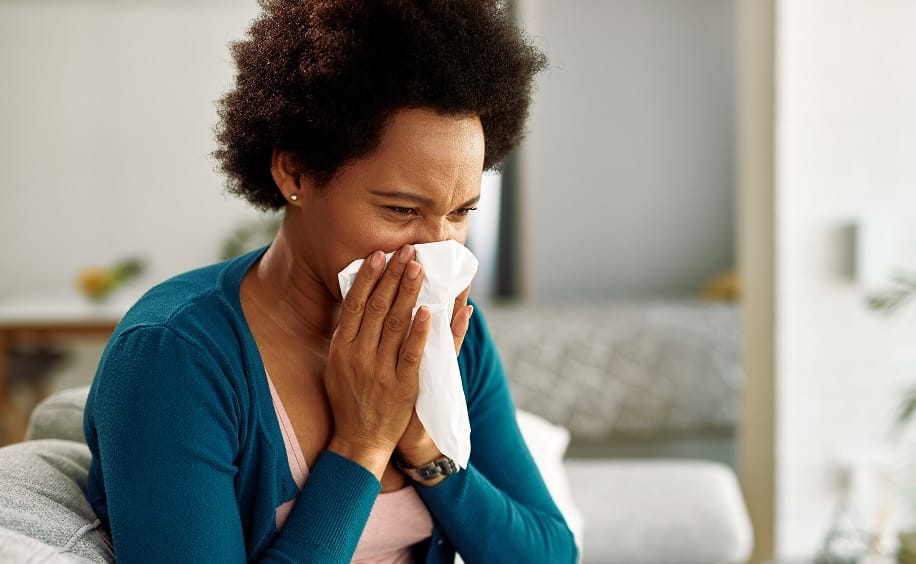The Immune System

What is the Immune System?
It is a complex network of cells and organs. In fact, it is the most complex system in the human body. In essence, its function is to defend the body against any foreign bacteria, virus or microorganism that may cause harm to the body or disease. Furthermore, it is responsible for removing dead cells from the body, and it can recognise cells that unwanted intruders have compromised. Moreover, your body mobilises it into action with any injury or wound. In short, without this vital system, we would not survive a dangerous infection such as COVID-19 nor be able to heal the simplest cut.
What makes up the immune system?
White blood cells
White blood cells patrol the body, constantly looking for any dangerous invaders. For this reason, we often call them the soldiers of the body. They are also known as leukocytes, and we find them in blood vessels and lymphatic vessels. Once they encounter an “enemy”, they begin to multiply and send signals to other cells to do the same.
There are two main types of white blood cells: Phagocytes and lymphocytes.
- Phagocytes surround and absorb pathogens and break them down; in essence, they eat the enemy.
- On the ther hand, Lymphocytes store the memory of previous infections and recognise them if they return to attack. This allows the body to provide a more effective immune response. This is also known as the adaptive part of this complex system.
The body has two important types of lymphocytes, B lymphocytes and T lymphocytes or B cells and T cells for short. B cells produce antibodies and alert the T cells of the invaders. After that, the T cells destroy compromised cells and help mobilise the rest of the white blood cells in the body.
The following special organs are involved in the immune system.
- The thymus is situated in the upper chest behind the sternum. This organ is responsible for producing and maturing T cells. These are a type of white blood cells that are crucial to the immune system and the key players that help fight infection.
- The spleen is a blood-filtering organ that removes old or damaged red blood cells from the body. It also stores white blood cells.
- Bone Marrow produces and stores white blood cells such as B cells.
- Lymph Nodes are located throughout the body and are linked to lymphatic vessels. They also make infection-fighting white cells.
Antibodies
Antibodies are also known as immunoglobulins. They are large Y-shaped proteins and the adaptive or memory-creating cells of the immune system produces them. The immune system produces antibodies after encountering chemicals or antigens which the body does not recognise. These unknown invaders create an immune response that causes all the cells to attack, break it down and remember it. Once the white blood cells have encountered and battled the invader, the Lymphocytes create a memory, and if they reencounter it, white blood cells produce and release these antibodies to attack the known pathogen. In other words, they are the search and destroy part of the army, and have specific targets in sight.
The Complement System
This is a system of proteins whose sole purpose is to support the function of antibodies.
The Lymphatic System
The function of the lymphatic system includes the following: Firstly, reacting to bacteria. Secondly, managing the fluid in the body. And thirdly, dealing with cell waste that would otherwise result in disease or disorders. The lymphatic system comprises lymph nodes, lymph vessels and white blood cells.
The Skin
The skin is our biggest organ and provides us with a barrier from moisture and protects us from bacteria. The lungs filter the air we breathe. The stomach lining contains antibodies that can kill bacteria found in foods. Flushing of the urinary tract and bowel movements also keep our immune system healthy. Even our tears contain antibacterial enzymes that lower the risk of infection.
Signs you have a compromised immune system
If you experience any of the following symptoms, you could be dealing with a compromised immune system:
- You are experiencing high levels of stress. Stress can affect your lymphocytes and leave your body vulnerable to viruses such as the common cold.
- You have reoccurring colds, flus or infections.
- You have issues with digestion or have constant tummy flus.
- Your wounds heal slowly.
- You feel tired and drained all the time.

How to keep your immune system healthy
- Sleeping is essential. Lack of sleep can affect the nervous system and the immune system. Getting enough sleep will ensure you keep your body rested and ready to deal with infections or pathogens.
- Eat more whole plant foods and healthy fats. Fruits, vegetables, nuts, seeds and legumes are rich in nutrients, antioxidants and fibre. Healthy fats like olive oil and omega-3 in salmon can have anti-inflammatory effects and promote a healthy immune system.
- Eating fermented foods such as pickles, kimchi, and sour kraut can promote a healthy gut and aid with digestion and protection against harmful bacteria.
- Limit processed carbohydrates and added sugars. Excessive sugar and carbohydrate intake can is linked to obesity which in turn affects the heart and may even lead to diabetes. These are all factors that can compromise your immune system.
- Engage in moderate exercise, as this can promote a healthy immune system.
- Stay hydrated; staying hydrated is essential for your overall health.
- Manage your stress levels.
- Be responsible with hygiene. The immune system is one of the most critical aspects of health and requires us also to be responsible with our hygiene. Washing our hands and oral hygiene are also essential factors for the immune system. A simple tooth infection can carry bacteria into our bloodstream and cause an immune reaction and we expose our hands to bacteria constantly. Taking care of your immune system is taking care of your health.
- Supplement wisely. The most important supplements for the immune system are Zinc, Vitamin C, Vitamin D, Folic Acid and Iron. For an extra boost, you can supplement with probiotics to ensure your gut is healthy.

Related Brochures

covid-19

autoimmune-diseases

hiv-1-what-is-hiv

